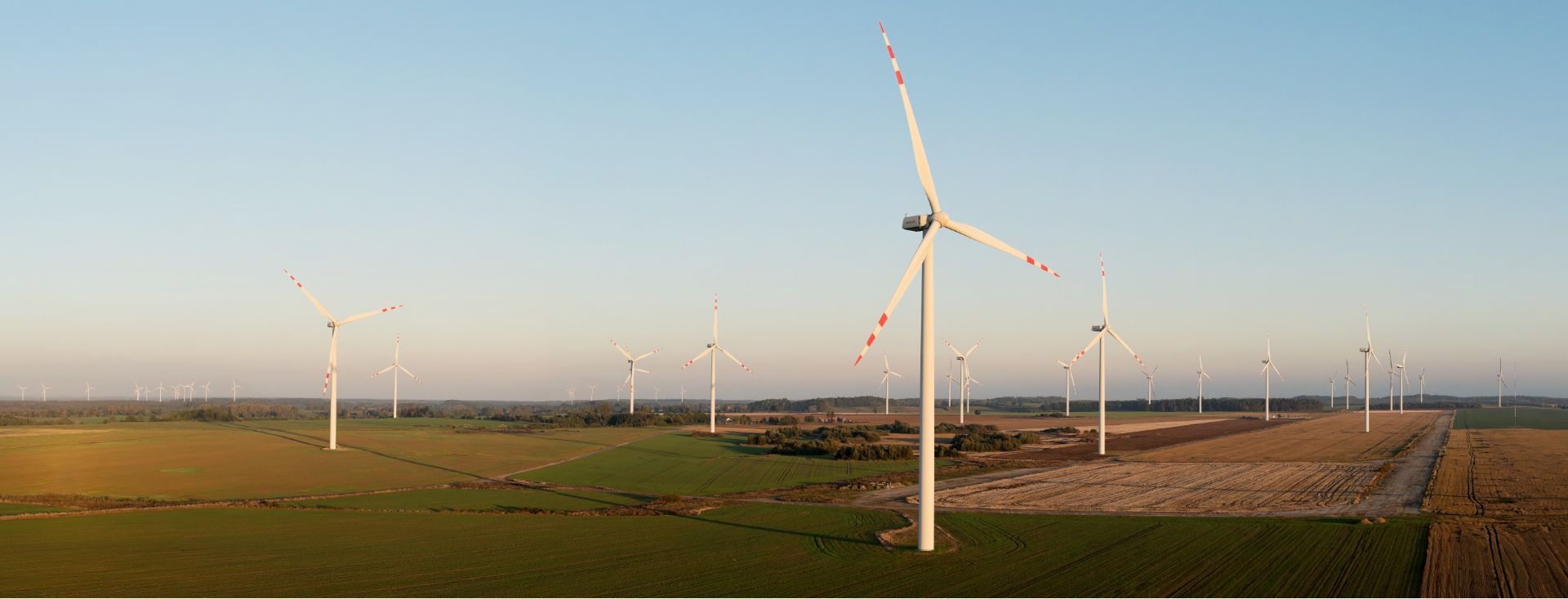About the report


This Integrated Report of non-financial information of PGE Polska Grupa Energetyczna S.A. and the PGE Capital Group has been drawn up in accordance with Directive 2014/95 of the European Parliament and of the Council (EU) 2014/95 (Non-Financial Reporting Directive, NFRD) as implemented in the Accounting Act and takes into account the guidelines for the preparation of a sustainability statement in accordance with Directive 2022/2464 of the European Parliament and of the Council (EU) 2022/2464 (Corporate Sustainability Reporting Directive, CSRD) to be included in the amended Accounting Act in 2024.
The statement presents non-financial information for the period from 1 January to 31 December 2023 and includes data for the PGE Capital Group and for the parent company PGE Polska Grupa Energetyczna S.A. and its subsidiaries.
The substantive content of the statement is the result of a thorough and detailed materiality analysis process. The content of the statement is, among other things, a response to the needs and expectations related to the provision of information and voiced during the dialogue sessions attended by nearly 80 key PGE stakeholder representatives. In the next step, particular topics were allocated the respective GRI standards (GRI Standards version 2021): core and mandatory standards, as well as those resulting from the materiality assessment. The selection of the statement’s content also benefited from the previous results of the double materiality analysis carried out as part of the PGE Group’s preparation for CSRD-compliant reporting.
The division of the chapters of the statement corresponds to the particular ESG areas, namely:
E – environmental
S – social
G – governance
In addition, the statement includes PGE’s own indicators, as well as references to the 10 Global Compact Principles and the Sustainable Development Goals (SDGs).
The numerical indicators are presented both within the individual thematic chapters and at the end of the statement. These are divided into environmental, labour, social, human rights and anti-corruption areas, as required by the NFRD. In line with the same division, information on the management of ESG risks is presented.

The key new elements in the 2023 non-financial information statement include the following:
- the statement’s structure reflecting next year’s CSRD guidelines,
- analysis of activities in line with the EU Environmental Taxonomy in a year-on-year comparison,
- analysis of the carbon footprint over the last three years,
- expanding the scope of environmental reporting,
- expanding the scope of reporting on ESG risks.
This non-financial information statement of PGE Polska Grupa Energetyczna S.A. (hereinafter: PGE S.A.) and the PGE Capital Group (hereinafter: PGE Group) as a public interest entity, has been prepared in accordance with the requirements of the amendment to the Accounting Act, implementing Directive 2014/95/EU into Polish law. The presentation of the content of the statement is based on the guidelines of the Corporate Sustainability Reporting Directive (CSRD), which will be included in the amendment of the Accounting Act in 2024.
The PGE Capital Group is also obliged to disclose the extent to which its business activities can be considered environmentally sustainable. This requirement stems from Regulation (EU) 2020/852 of the European Parliament and of the Council of 18 June 2020 on establishing a framework to facilitate sustainable investment, amending Regulation (EU) 2019/2088 and the Delegated Regulations on establishing a framework to facilitate sustainable investment (hereinafter: EU Environmental Taxonomy, Taxonomy). In accordance with Commission Delegated Regulation (EU) 2021/2178, the first annual reporting period covered 2021, for which eligibility indicators were reported. In the second and third reporting years, i.e. the years 2022 and 2023, indicators are reported for both eligibility for and compliance with the Taxonomy.
The statement is prepared on an annual basis and presents non-financial information for the period from 1 January to 31 December 2023 and includes consolidated data for the PGE Capital Group and for the parent company – PGE Polska Grupa Energetyczna S.A.
As at 31 December 2023, the PGE Group consisted of the following entities:
- the parent company, i.e. PGE Polska Grupa Energetyczna S.A.,
- 80 fully consolidated subsidiaries,
- 2 entities constituting so-called joint operations,
- 6 associates and jointly controlled entities.
Entities included in the reporting of sustainability issues:
For employee issues, 33 entities and their employment data for 2023 are included in the non-financial information statement. These are the following entities:
- PGE Polska Grupa Energetyczna S.A. (PGE S.A.)
- PGE Górnictwo i Energetyka Konwencjonalna (PGE GiEK)
- PGE Energia Odnawialna S.A. (PGE EO)
- PGE Dystrybucja S.A.
- PGE Obrót S.A.
- GOZ (Circular Economy)
- PGE Energetyka Kolejowa S.A. (PGE EKO S.A.)
- PGE Energia Ciepła S.A. (PGE EC)
- PGE Paliwa sp. z o.o.
- PGE Toruń S.A.
- Zielona Góra CHP
- KOGENERACJA S.A.
- PGE Synergia sp. z o.o
- PGE Systemy S.A.
- PGE Dom Maklerski S.A.
- PGE Nowa Energia sp. z o.o.
- PGE Baltica sp. z o.o.
- PGE Ventures sp. z o.o.
- PTS BETRANS sp. z o.o.
- BESTGUM sp. z o.o.
- Elbis sp. z o.o.
- ELTUR-SERWIS sp. z o.o.
- MegaSerwis sp. z o.o.
- RAMB sp. z o.o.
- ENESTA sp. z o.o.
- ELMEN sp. z o.o.
- Energoserwis – Kleszczów sp. z o.o.
- MEGAZEC sp. z o.o.
- ELBEST Security sp. z o.o.
- Energetyczne Systemy Pomiarowe sp. z o.o.
- PGE Gryfino 2050 sp. z o.o.
- PGE Asekuracja S.A.
- Rybnik 2050 sp. z o.o.
In the case of environmental issues, an annotation is included next to each GRI indicator from this area, showing the scope of data. The list of companies included in the calculation of the carbon footprint for the PGE Group is given in the chapter “PGE Group’s carbon footprint”.
The financial data presented in the PGE Group’s 2023 statement of non-financial information are consistent with the information contained in the PGE Group’s consolidated financial statements for the year ended 31 December 2023, which have been prepared in accordance with the requirements of the International Financial Reporting Standards (“IFRS”) as adopted by the European Union.
The information on the application of the corporate governance principles is based on the recommendations and principles contained in “The Good Practices of Companies Listed on the Warsaw Stock Exchange 2021”.
The 2023 statement of non-Financial information has been prepared taking into account the current Global Reporting Initiative standards, including:
- GRI 1: Foundation (2021)
- GRI 2: General Disclosures (2021)
- GRI 3: Material Topics (2021)
In addition, the statement includes PGE’s own indicators, as well as references to the 10 Global Compact Principles and the Sustainable Development Goals (SDGs).
Identification of key impact areas
The identification of key impact areas was the basis for determining the material topics to be presented in the PGE Group’s non-financial information statement. This was done through internal and external consultations conducted in the form of workshops and panel discussions in 2022.
The needs and expectations related to information and resulting from the identification of actual and potential, negative and positive economic, environmental and human impacts necessary to be included in the non-financial information statement were expressed by almost 80 key PGE stakeholder representatives during dialogue sessions held in mid-June 2022. They were conducted in accordance with the AA1000 SES standard, with the support of an independent external facilitator. Meetings with stakeholders, in workshop format, are organised every other year.
As a result of the dialogue, the PGE Group’s key stakeholders indicated the following most relevant topics to be discussed in the PGE Group’s non-financial information statement:
Strategy and its implementation
Preventing the emergence of non-compliance with laws and regulations (including those relating to the supply and use of products and services), as well as ensuring compliance with environmental regulations, preventing abuses, violations of environmental laws and regulations
The company’s climate impact, including greenhouse gas emissions and methods of their reduction
The company’s impact on the environment and its preventive measures
Managing energy consumption in the organisation
Water management in the organisation
Waste management
The key topics were defined in relation to two dimensions:
- impact – what influence the PGE Group’s activities have on the issue under consideration
- materiality – the extent to which the topic is relevant to the PGE Group’s activities
At the same time, between September 2023 and January 2024, as part of the PGE Group’s preparation for reporting in line with the new EU directive, the CSRD, the PGE Group conducted an in-depth materiality analysis of the organisation’s impact on the environment and began the process of preparing for a financial materiality analysis.

In order to adapt PGE’s reporting to the new sustainability reporting requirements under the CSRD, which will apply to PGE from the beginning of 2025 (a statement for the financial year 2024), the following preparatory activities were undertaken:
- the list of entities subject to reporting in the PGE Group was revised,
- a value chain analysis was carried out,
- an initial list of topics relevant to the dual materiality process was identified.
These processes were carried out based on the Directive’s guidelines, with the involvement of an external consulting firm. The project involved key executives responsible for selected management areas at PGE.
The result of the analysis of the dual materiality assessment and the development of a list of material topics is the identification of a set of European Sustainability Reporting Standards (ESRS) indicators to be reported by PGE from 2024 onwards. At the same time, the list of these themes identified as material was compared with the list of indicators reported so far (in line with the principles of the GRI standards). This analysis has shown that all indicators reported to date in accordance with the GRI are relevant to the future implementation of this process under the ESRS. The 2023 non-financial information statement covers the thematic areas that will also be present in the 2024 ESRS-compliant statement.
With regard to the management of material topics, in accordance with GRI 3-3, the PGE Group addresses the following aspects to which the indicated GRI indicators are assigned.
| Material topics | GRI aspects | Indicator |
|---|---|---|
| 1. Strategy and its implementation | Economic performance | Own indicator GRI 201-1 GRI 201-2 |
| 2. Compliance with laws and regulations, including compliance with environmental regulations | Not applicable | GRI 2-47 Own indicator – environmental penalties |
| 3. Company’s climate impact – greenhouse gas emissions and methods of their reduction | Emissions | GRI 305-1 GRI 305-2 GRI 305-3 GRI 305-4 GRI 305-5 GRI 305-6 GRI 305-7 GRI 201-2 |
| 4. The company’s impact on the environment and its preventive measures | Resources Biodiversity |
GRI 301-1 GRI 301-2 GRI 301-3 GRI 304-1 GRI 304-2 GRI 304-3 GRI 304-4 |
| 5. Managing energy consumption in the organisation | Energy | GRI 302-1 GRI 302-2 GRI 302-3 GRI 302-4 GRI 302-5 |
| 6. Water management in the organisation | Water and wastewater | GRI 303-1 GRI 303-2 GRI 303-3 GRI 303-4 GRI 303-5 |
| 7. Waste management | Waste | GRI 306-1 GRI 306-2 GRI 306-3 GRI 306-4 GRI 306-5 |
| 8. Employee issues with a particular focus on the energy transition | Employment Health and safety Training and education Diversity and equal treatment Total number of cases of discrimination |
GRI 401-1 GRI 401-2 GRI 401-3 GRI 403-1 GRI 403-2 GRI 403-3 GRI 403-4 GRI 403-5 GRI 403-6 GRI 403-7 GRI 403-8 GRI 403-9 GRI 404-1 GRI 404-2 GRI 404-3 GRI 405-1 GRI 405-2 GRI 406-1 |
| 9. Transparency of operations in accordance with corporate governance principles of the PGE Capital Group | Preventing corruption Child labour Forced labour Customer privacy |
GRI 205-1 GRI 205-2 GRI 205-3 GRI 408-1 GRI 409-1 GRI 418-1 |
Restatement of information
Due to the availability of data of a higher quality already after the publication of the non-financial information statement on the activities of PGE Polska Grupa Energetyczna S.A. and the PGE Capital Group for 2022, corrections were made to the current report with regard to environmental data as follows:
Statement verification
The non-financial information statement of PGE S.A. and the PGE Group for the year 2023 was not externally verified in its entirety. By the time of publication of this statement, the financial and CO2 emissions data had been fully externally verified. Other verifications take place each year at different dates, including later than the publication of the non-financial information statement. The data listed below were verified by an external entity:
- the financial data consistent with the financial statements and/or consistent with the 2023 management report. The audit was carried out by PKF Consult spółka z ograniczoną odpowiedzialnością sp.k., in accordance with the National Auditing Standards (“NAS”) in the wording of the International Auditing Standards adopted by the National Council of Statutory Auditors and pursuant to the Statutory Auditors, Audit Firms and Public Supervision Act of 11 May 2017 (“Statutory Auditors Act” – Journal of Laws of 2022, item 1302, as amended) and Regulation (EU) no. 537/2014 of the European Parliament and of the Council of 16 April 2014 on specific requirements regarding statutory audit of public-interest entities (“EU Regulation” – OJ EU L158, as amended).
- data on CO2 emissions from PGE Group installations participating in the EU ETS system – the CO2 emissions were verified by an authorised and independent accredited verifier, from the list of accredited verifiers published on the KOBiZE website. The volume of CO2 emissions is calculated on the basis of and in accordance with the legal regulations applicable to the ETS system, in particular with decisions of competent authorities allowing the emission of greenhouse gases from installations. Facility operators are responsible for preparing and submitting reports on their annual greenhouse gas emissions in accordance with the rules and the approved monitoring plan.
- Sustainability Criterion certification for biomass combustion – applies to PGE Energia Ciepła S.A. for the following locations: Branch in Szczecin and the Kielce CHP Plant Branch, a subsidiary of Zespół Elektrociepłowni Wrocławskich KOGENERACJA S.A. The Czechnica CHP Plant of the Dolna Odra Power Plant Branch of PGE Górnictwo i Energetyka Konwencjonalna S.A. and PGE Paliwa, where the Sustainability Criterion System (SCS) was implemented and certified. Current certificates are available on the website of the Oil and Gas Institute (OGI).Participants of the SCS and OGI are required to certify the entire life cycle of biofuels, bioliquids and biomass fuels. Registration in the scheme signifies that the organisation meets the requirements of the sustainability criteria as required by the European Commission (RED II Directive).
- EMAS verification – it concerns the full range of environmental data for two branches of PGE Górnictwo i Energetyka Konwencjonalna, i.e. the Opole Power Plant and the Dolna Odra Power Plant, and a branch of PGE Energia Ciepła, i.e. the Wybrzeże CHP Plant. The Eco-Management and Audit Scheme (EMAS PI:2999), together with the prepared environmental statement, is subject to annual verification by an independent accredited verifier. Registration in the EMAS system means meeting the highest standards in environmental management and audit.
Contact
If, after reading this statement, you would like to share your insights or ideas, please feel free to contact us. We look forward to receiving your emails:
the Investor Relations and ESG Department
email:esg@gkpge.pl




